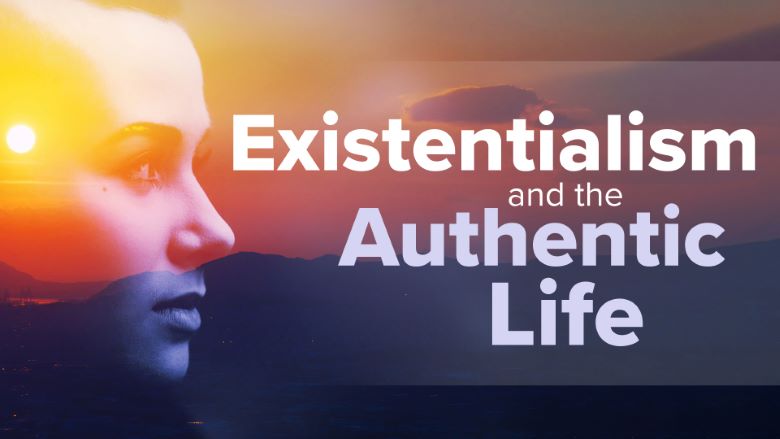در حال حاضر محصولی در سبد خرید شما وجود ندارد.

“What’s the point of it all?” Most of us have asked ourselves that question at one time or another. The philosophers known as the existentialists certainly did—and for the same reasons you might: war, love, politics, racism, mortality, and more.
For millennia, people have been searching for the meaning of life. The term “existentialists” was first used in the mid-20th century to describe a group of philosophers and writers who focused their inquiry on exactly that. Luckily for us, they did not just ask the questions. Sartre, Beauvoir, Kierkegaard, Nietzsche, Camus, Fanon, and others also came up with answers, ideas, and suggestions we can apply to our own lives today.
In the 24 fascinating lectures of Existentialism and the Authentic Life, Professor Skye C. Cleary will lead you through the writings of both famous and lesser-known existentialists to help you understand the biggest of all questions. Writing about love, death, sex, war, plagues, intrigue, murder, deception, and more, these thinkers guide you through living an authentic and meaningful life in a world that often seems absurd.
Explore Powerful Existential Ideas
Chances are you’ve heard the statement: “God is dead.” Written by German philosopher Friedrich Nietzsche and published in 1882 in his book The Gay Science (and elsewhere), that one sentence has sparked debate for more than a century. Many have taken offense; others have embraced it. But Nietzsche didn’t mean that God (the deity) was dead. What was dead—and what the Enlightenment had ended—was a Western culture governed by the belief that God oversaw every single aspect of life.
But if God is no longer in charge of my life and not responsible for humanity’s rights and wrongs, who is? The existentialists answered with a resounding: you. You are responsible for your own life, and you have the freedom to choose what you do with that life. It’s up to you to give it meaning and purpose. If you were used to thinking that God was in control and your only responsibilities were worshipping God and following the society’s rules, then this existentialism presented a completely new, possibly even shocking, paradigm.
In this course, you’ll learn about some of the main issues addressed by existentialism. These include:
Examine Misconceptions about Existentialism
In addition to learning about existentialism in this course, you’ll also learn what it is not. Many people hear the term existentialism, along with Nietzsche’s “God is dead,” and immediately assume this philosophy posits that God does not exist, and life is meaningless. Neither is true.
Existentialism does not require that you do or do not believe in God. But, if you do believe in God, existentialism says you are still responsible for all your own life choices. Do existentialists believe that life is meaningless? Definitely not. To the contrary, their works point to many ways in which you can infuse your life with meaning.
Other misconceptions about existentialism include:
Meet Existentialists You’ve Never Heard Of
Did you know that Sartre and Beauvoir hated being called existentialists? While they fought for a while against having their thinking boxed in, labeled, and catalogued, they finally gave up—realizing that they had more important battles to fight. Many of the philosophers—such as Kierkegaard and Nietzsche—have been retrospectively classified as existential.
Still, other philosophers included in this course are not always considered existentialists, although their works certainly focus on the main existential themes. Some of these writers include:
These philosophers thought deeply about our world—not just their own lives, but the lives around them. They continually put forward challenging ideas to help answer the question we all have from time to time: “What in the world is the point of it all?”
In Existentialism and the Authentic Life, discover how the existentialists can guide you toward answering that question for yourself.
در این روش نیاز به افزودن محصول به سبد خرید و تکمیل اطلاعات نیست و شما پس از وارد کردن ایمیل خود و طی کردن مراحل پرداخت لینک های دریافت محصولات را در ایمیل خود دریافت خواهید کرد.
✨ تا ۷۰% تخفیف با شارژ کیف پول 🎁
مشاهده پلن ها